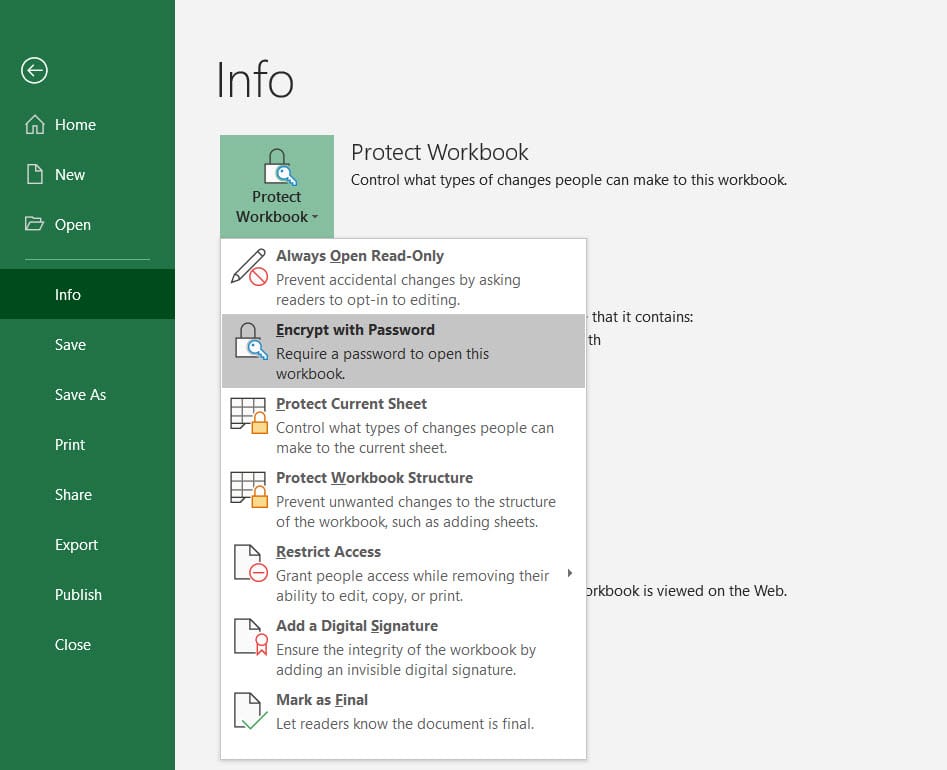5 Ways to Edit Protected Excel Sheets Easily

Editing protected Excel sheets can often feel like trying to solve a complex puzzle, especially if you're not equipped with the right tools or knowledge. Whether you're looking to make updates, analyze data, or tweak a spreadsheet that's locked by your colleagues or for regulatory reasons, this post will guide you through five effective methods to edit those protected Excel sheets with ease.
Method 1: Password Cracking Tools

One of the simplest yet somewhat controversial methods to bypass Excel’s protection is through password cracking tools. Here’s how you can approach this:
- Download and install a reputable password recovery tool like Excel Password Recovery or PassFab for Excel.
- Open the tool and select your protected Excel file.
- Choose the attack type (e.g., dictionary attack, brute-force attack, or hybrid attack).
- Start the cracking process, which might take some time depending on the complexity of the password.
⚠️ Note: Cracking a password without permission might violate privacy and security policies of your organization or be illegal. Use this method only if you have the right to access the file.
Method 2: VBA Macro Workaround

Visual Basic for Applications (VBA) can be used to manipulate Excel sheets in ways that bypass traditional protection. Here’s how:
- Open your protected Excel workbook.
- Press Alt + F11 to open the VBA Editor.
- Right-click any sheet name in the left pane, select Insert > Module.
- Paste the following code into the new module:
Sub UnProtectSheet() Dim i As Integer, j As Integer, k As Integer Dim l As Integer, m As Integer, n As Integer Dim i1 As Integer, j1 As Integer, k1 As Integer Dim l1 As Integer, m1 As Integer, n1 As IntegerOn Error Resume Next For i = 65 To 66: For j = 65 To 66: For k = 65 To 66 For l = 32 To 126: For m = 32 To 126: For i1 = 32 To 126 For j1 = 32 To 126: For k1 = 32 To 126: For l1 = 32 To 126 For m1 = 32 To 126: For n = 32 To 126: For n1 = 32 To 126 For o = 32 To 126: For o1 = 32 To 126 ActiveSheet.Unprotect Chr(i) & Chr(j) & Chr(k) & Chr(l) & Chr(m) & Chr(i1) & Chr(j1) & Chr(k1) & Chr(l1) & Chr(m1) & Chr(n) & Chr(n1) & Chr(o) & Chr(o1) Next: Next: Next: Next: Next: Next Next: Next: Next: Next: Next: Next Next: Next: Next: Next: Next: Next If ActiveSheet.ProtectContents = False Then MsgBox "One usable password is " & Chr(i) & Chr(j) & Chr(k) & _ Chr(l) & Chr(m) & Chr(i1) & Chr(j1) & Chr(k1) & Chr(l1) & Chr(m1) & Chr(n) & Chr(n1) & Chr(o) & Chr(o1) Exit Sub End If
Next: Next: Next: Next: Next: Next End Sub
⚠️ Note: This method might take a long time if the password is complex. Also, ensure your macros are enabled in Excel settings.
Method 3: Online Password Recovery Services

If you prefer a more passive approach or lack expertise in software tools, online services like LostMyPassword or ExcelUnprotect can be your solution:
- Visit the website of the password recovery service.
- Upload the protected Excel file or provide the password hash if available.
- Wait for the service to attempt to recover the password.
⚠️ Note: Use this service with caution, as online services might not comply with data privacy regulations, and there’s always a risk of file theft or loss.
Method 4: Hex Editing

Hex editing involves modifying the binary of the Excel file, which can be risky but effective:
- Make a backup copy of your Excel file.
- Use a hex editor like HxD or 010 Editor.
- Open the Excel file in the hex editor.
- Search for the pattern
0A 4C 6F 63 6B 65 64 57 6F 72 6B 62 6F 6F 6Bwhich means ‘LockedWorkbook’. - Replace the byte
01after this string with00to unprotect the workbook. - Save the file and open it in Excel to check if the protection is removed.
🔍 Note: Hex editing can corrupt your file if not done correctly. Always backup your files before proceeding.
Method 5: Excel’s Built-in Tools

Microsoft Excel has some built-in methods to circumvent protection:
- Unsharing Workbook: If the workbook is shared, go to Review > Unshare Workbook to potentially remove protection.
- Removing Worksheet Protection: Navigate to Review > Unprotect Sheet, and if it prompts for a password, it might not be protected with a strong password.
- Check for Backdoors: Sometimes sheets are protected with weak or easily guessed passwords. Try common passwords like ‘password’, ‘123456’, etc.
In our journey through editing protected Excel sheets, we've explored a variety of methods from password cracking to using Excel's built-in tools. Each method has its pros and cons, from the legal implications of password cracking tools to the potential for data corruption in hex editing. Remember to always operate within the bounds of your rights and permissions when dealing with protected data. The key to managing protected Excel sheets effectively is not just technical know-how but also understanding the implications of each approach.
Is it legal to crack an Excel sheet’s password?

+
Cracking a password without permission can be illegal if it violates data protection laws or company policies. Always ensure you have the right to access or modify the file.
Can using a VBA macro unprotect any Excel sheet?

+
No, VBA macros can only unprotect sheets with weaker password protection. Sheets with strong, complex passwords or additional security measures might not be vulnerable to this method.
What are the risks associated with hex editing an Excel file?

+
Hex editing can potentially corrupt the file if changes are made incorrectly or inappropriately. Always work on a backup and ensure you understand the implications of each change.



